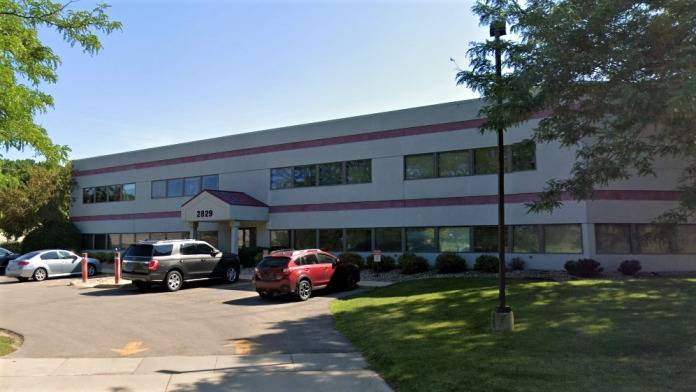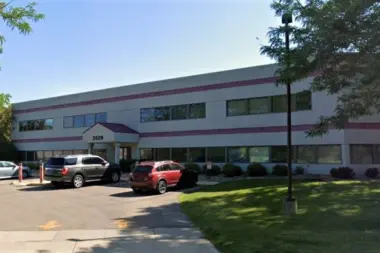About Lake City Counseling LLC
They recommend that potential clients review the center’s therapist profiles and see if any particular individuals stand out for them in terms of specialties and experience. Following this, clients are encouraged to reach out to their desired therapist regarding availability and go from there. Most of their staff prefer email communication.
Some therapists here also offer telehealth appointments as well as in-person sessions. If commuting for in-person sessions could be an issue then this is something the center suggests looking out for when scoping out options.
Across the center’s team of highly qualified therapists, you may notice a range of experience and special training. Most clinicians here have experience providing therapy for common mental health issues like anxiety and depression as well as grief, stress, past traumas, parenting issues, and relationship issues.
However, amongst these, you may also notice more specialized areas, like brainspotting, trauma-focused mindfulness, and addiction treatment therapy. The latter is ideal for individuals struggling with addiction of any kind including gambling addiction and substance use disorder (SUD).
Sessions are available one-to-one, as part of group, family, or couples therapy. Specialized, age-appropriate therapy is also available for kids and teens.
Feedback from former clients is overwhelmingly positive with many shouting out specific counselors for their kind and caring natures and warm welcome.
Latest Reviews
Rehab Score
Gallery


Accepted Insurance
Other Forms of Payment
Self-pay involves paying for treatment out of your own pocket. You can use savings or credit, get a personal loan, or receive help from family and friends to fund your treatment. If you don't have insurance or your insurance plan doesn't cover a specific program, self-pay can help ensure you still get the care you need.
Financial aid can take many forms. Centers may have grants or scholarships available to clients who meet eligibility requirements. Programs that receive SAMHSA grants may have financial aid available for those who need treatment as well. Grants and scholarships can help you pai for treatment without having to repay.
Medicare is a federal program that provides health insurance for those 65 and older. It also serves people under 65 with chronic and disabling health challenges. To use Medicare for addiction treatment you need to find a program that accepts Medicare and is in network with your plan. Out of pocket costs and preauthorization requirements vary, so always check with your provider.
Addiction Treatments
Levels of Care
Outpatient Programs (OP) are for those seeking mental rehab or drug rehab, but who also stay at home every night. The main difference between outpatient treatment (OP) and intensive outpatient treatment (IOP) lies in the amount of hours the patient spends at the facility. Most of the time an outpatient program is designed for someone who has completed an inpatient stay and is looking to continue their growth in recovery. Outpatient is not meant to be the starting point, it is commonly referred to as aftercare.
Intensive outpatient programs (IOP) support clients' return to their community following inpatient treatment and may also offer an alternative to hospitalization for clients who are relatively stable following detox. Many intensive outpatient rehabs require clients to participate in a minimum of nine and a maximum of 20 treatment hours weekly. IOP services are also highly customizable and typically include a combination of addiction counseling, recovery-focused life skills training, medication assisted treatment (MAT), and holistic therapies such as meditation.
Rehab aftercare programs support clients' long-term recovery through highly customized wraparound care aligned with clients' evolving needs. Most have been sober for a period of weeks or longer and have completed intensive inpatient rehab but may be receiving outpatient care. Many clients also receive services after being discharged from formal treatment. Long-term care plans are typically developed in collaboration with the client's case manager and care team and may include peer coaching, relapse prevention, and related services.
Treatments
Treatment for alcohol use disorder (AUD) is available in several formats and levels of care. The treatment process address various issues that contribute to a dependence on alcohol (often referred to as alcoholism). Alcohol rehab in Wisconsin provides the tools and supports you'll need to overcome AUD and maintain long-term sobriety.
The goal of drug rehab in Wisconsin is to address drug addiction as a complex issue that involves physical, mental, and relational aspects. During rehab, treatment focuses on each of these areas and gives you the tools you need to achieve and maintain sobriety.
In Wisconsin, dual-diagnosis rehabs provide beneficial comprehensive care if you're struggling with a co-occurring mental health and substance abuse disorder. You can usually expect treatment to include evidence-based therapies such as cognitive-behavioral therapy (CBT) and dialectical behavior therapy (DBT) in order simultaneously to address both conditions.
Programs
Adult rehab programs include therapies tailored to each client's specific needs, goals, and recovery progress. They are tailored to the specific challenges adult clients may face, including family and work pressures and commitments. From inpatient and residential treatment to various levels of outpatient services, there are many options available. Some facilities also help adults work through co-occurring conditions, like anxiety, that can accompany addiction.
Young adulthood can be an exciting, yet difficult, time of transition. Individuals in their late teens to mid-20s face unique stressors related to school, jobs, families, and social circles, which can lead to a rise in substance use. Rehab centers with dedicated young adult programs will include activities and amenities that cater to this age group, with an emphasis on specialized counseling, peer socialization, and ongoing aftercare.
Clinical Services
Conflict resolution and stress are common triggers for addictive behavior. Within a group therapy setting, participants learn to practice essential skills to improve relationships, manage conflict, and reduce stress. Each of these is a crucial factor in maintaining recovery.
In individual therapy, a patient meets one-on-one with a trained psychologist or counselor. Therapy is a pivotal part of effective substance abuse treatment, as it often covers root causes of addiction, including challenges faced by the patient in their social, family, and work/school life.
Amenities
-
Private Setting
Staff

Michaela Voeck, MS, LPC, CSAC
Owner & Director

Allison
Office Manager

Anita
Billing Coordinator

Katie Richgels, MS, LPC, CSAC
Psychotherapist
Contact Information
1532 W Broadway
#202
Monona, WI 53713


